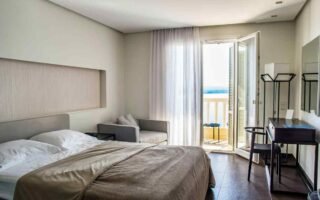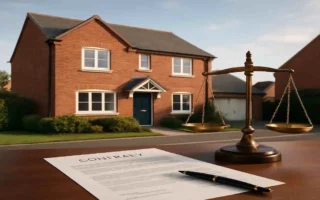Have you ever wondered what it takes to build or buy an 8-bedroom house? Whether you’re dreaming of a sprawling family estate or considering a lucrative investment property, understanding the actual cost of such a significant undertaking is absolutely crucial. Yet, many people jump into this process with rose-colored glasses, only to find themselves overwhelmed by unexpected expenses and hidden costs.
The truth is, estimating the cost of an 8-bedroom house isn’t as simple as multiplying a basic price by the number of rooms. It’s a complex puzzle with many moving pieces, each affecting your final investment in different ways.
Common misconceptions often lead people astray. Some believe that bigger automatically means proportionally more expensive, while others underestimate the impact of location, materials, and special features on the overall price tag. These misunderstandings can lead to budget overruns, turning dream homes into financial nightmares.
Understanding the Basics of an 8 Bedroom House
Let’s start with the fundamentals. What exactly qualifies as an 8-bedroom house, and why would someone want one?
An 8-bedroom house typically ranges from 4,000 to 10,000 square feet or more, depending on the layout and additional spaces included. These aren’t just homes; they’re estates that offer unprecedented space and flexibility for their owners.
Who Needs This Much Space?
The appeal of 8-bedroom houses extends to several distinct groups:
Large families often find these homes perfect for multi-generational living. Grandparents, parents, and children can all have their own private spaces while sharing common areas for family gatherings.
Investors see these properties as excellent opportunities for rental income. Whether converted into luxury vacation rentals or subdivided into multiple units (where zoning allows), the potential returns can be substantial.
Luxury market buyers appreciate the prestige and possibilities these homes offer. From dedicated home theaters to private gyms, wine cellars to guest suites, an 8-bedroom house provides the canvas for creating a truly customized living experience.
The Size-Cost Relationship
Here’s something crucial to understand: the relationship between house size and cost isn’t always linear. While a larger house will obviously cost more than a smaller one, the price per square foot often decreases as homes get bigger. This happens because certain fixed costs (like kitchens and primary bathrooms) don’t multiply with each additional bedroom.
However, 8-bedroom houses often include premium features that can reverse this trend. Multiple kitchens, numerous bathrooms, and high-end finishes throughout can drive costs higher than you might expect based solely on square footage.
Key Factors Influencing the Cost of an 8 Bedroom House
Before diving into specific calculations, you need to understand the significant factors that will impact your final cost. Think of these as the ingredients in your cost estimation recipe – each one affects the final result in essential ways.
Location and Land Costs
Location isn’t just important – it’s everything when it comes to real estate costs. An 8-bedroom house in rural Montana will cost dramatically less than a similar property in Beverly Hills or Manhattan.
Land costs vary wildly based on:
- Urban density (city centers vs. suburbs vs. rural areas)
- School districts and local amenities
- Natural features like waterfront access or mountain views
- Local economic conditions and job markets
Architectural Style and Design Complexity
The architectural style you choose significantly impacts both construction costs and timeline. A simple colonial design with a rectangular footprint costs far less than a sprawling Mediterranean villa with curved walls, custom archways, and intricate tile work.
Complex designs require:
- More detailed planning and architectural drawings
- Specialized labor and craftsmanship
- Longer construction timelines
- Higher material waste due to custom cuts and shapes
Building Materials Quality and Availability
Your choice of materials can swing costs by hundreds of thousands of dollars. Consider the difference between:
Material Category Budget Option Premium Option Cost Difference
Flooring Carpet/Vinyl Hardwood/Marble 3-10x
Countertops Laminate Granite/Quartz 4-8x
Roofing Asphalt Shingles Slate/Clay Tiles 5-15x
Windows Vinyl Double-Pane Custom Wood Triple-Pane 3-6x
Labor and Construction Costs
Labor costs vary dramatically by region and can account for 40-60% of your total construction budget. Areas with strong unions, high costs of living, or labor shortages will see significantly higher prices.
Permits, Taxes, and Fees
Don’t forget the paperwork! Building an 8-bedroom house requires numerous permits and inspections:
- Building permits
- Electrical permits
- Plumbing permits
- Environmental impact assessments
- Septic system permits (if applicable)
- Well permits (for rural properties)
Additional Features and Amenities
Modern 8-bedroom houses often include luxury amenities that can add substantial costs:
- Swimming pools and spas
- Home theaters
- Wine cellars
- Smart home systems
- Security systems
- Landscaping and outdoor kitchens
Calculate the Average Cost per Square Foot
Now let’s get into the nitty-gritty of actually calculating costs. The foundation of any reasonable estimate begins with understanding the price per square foot.
What Does Cost per Square Foot Really Mean?
Cost per square foot is simply the total cost divided by the total square footage. It’s the most common way to compare construction and real estate prices because it provides an apples-to-apples comparison between different-sized properties.
However, remember that this metric includes everything – from the foundation to the roof, from basic finishes to any upgrades you choose.
Regional Cost Variations
Here’s what you can expect to pay per square foot for an 8-bedroom house in different scenarios:
Low-Cost Regions and Basic Finishes: $100-150 per square foot
- Rural areas with lower labor costs
- Standard materials and finishes
- Simple architectural designs
Mid-Range Markets and Quality Finishes: $150-300 per square foot
- Suburban areas in most states
- Good quality materials
- Some custom features
High-End Markets and Luxury Finishes: $300-500+ per square foot
- Prime urban or coastal locations
- Premium materials throughout
- Extensive customization
Finding Reliable Cost Data
To get accurate local pricing:
- Contact local builders for recent project costs
- Check building department records for permit valuations
- Use online cost calculators specific to your area
- Review recent sales of similar new construction
Estimate the Total Square Footage of an 8 Bedroom House
Determining the square footage of your 8-bedroom house is more complex than just adding up bedroom sizes. You need to account for every space that will be under the roof.
Average Square Footage Ranges
Most 8-bedroom houses fall within these ranges:
- Compact 8-bedroom: 4,000-5,000 sq ft
- Standard 8-bedroom: 5,000-7,000 sq ft
- Luxury 8 bedroom: 7,000-10,000+ sq ft
Breaking Down the Space
Here’s how square footage typically breaks down:
Bedrooms: 8 bedrooms × 200-400 sq ft each = 1,600-3,200 sq ft
- Main suite: 400-800 sq ft
- Secondary bedrooms: 150-300 sq ft each
Bathrooms: Usually 6-10 bathrooms × 50-150 sq ft = 300-1,500 sq ft
- Master bath: 150-300 sq ft
- Full baths: 80-120 sq ft
- Half baths: 40-60 sq ft
Common Areas:
- Kitchen: 300-600 sq ft
- Living room: 300-500 sq ft
- Dining room: 200-400 sq ft
- Family room: 300-500 sq ft
Additional Spaces:
- Hallways and stairs: 10-15% of total
- Garage: 400-1,000 sq ft
- Basement (if applicable): Can double your space
Tools for Accurate Measurement
To estimate square footage accurately:
- Use floor plan software to design your layout
- Study similar house plans online
- Hire an architect for preliminary drawings
- Consider 3D modeling tools for visualization
Calculate Construction or Purchase Base Price
With your cost per square foot and total square footage determined, you can now calculate your base price. This is where the rubber meets the road in your cost estimation journey.
The Basic Formula
It’s surprisingly simple: Base Price = Cost per Square Foot × Total Square Footage.
Real-World Examples
Let’s look at three scenarios for a 6,000 square foot 8-bedroom house:
Budget Build in Rural Area:
- $125 per sq ft × 6,000 sq ft = $750,000
- Basic finishes, simple design
- Lower labor costs
Mid-Range Suburban Build:
- $225 per sq ft × 6,000 sq ft = $1,350,000
- Quality materials, some customization
- Average labor costs
Luxury Urban Build:
- $400 per sq ft × 6,000 sq ft = $2,400,000
- Premium everything
- High labor and material costs
Customization Impact
Remember, these base prices assume standard finishes. Customization can add 20-50% or more to your base price. Every upgrade, every special request, every deviation from standard plans adds cost.
Account for Additional Costs and Upgrades
Your base price is just the beginning. Now we need to add all the extras that turn a house into a modern home. These additional costs can easily add 30-50% to your base price if you’re not careful.
Landscaping and Outdoor Features
The exterior of your 8-bedroom house deserves as much attention as the interior:
Basic Landscaping: $15,000-30,000
- Grass, bare plants, simple irrigation
- Gravel or concrete driveway
- Basic outdoor lighting
Premium Landscaping: $50,000-150,000+
- Professional design with mature trees
- Outdoor kitchen and entertainment areas
- Pool and spa: $50,000-100,000
- Elaborate water features
Interior Features and Finishes
This is where costs can really spiral:
Flooring Upgrades:
- Hardwood throughout: $30,000-60,000
- Premium tile or stone: $40,000-80,000
- High-end carpeting: $20,000-40,000
Kitchen and Bath Upgrades:
- Gourmet kitchen: $75,000-200,000
- Luxury master bath: $30,000-75,000
- Additional bathroom upgrades: $10,000-25,000 each
Energy-Efficient Systems
Investing in efficiency pays off long-term:
- Solar panel system: $30,000-60,000
- Geothermal HVAC: $25,000-45,000
- High-efficiency windows: $30,000-50,000
- Superior insulation: $10,000-20,000
Smart Home Technology
Modern 8-bedroom houses often include:
- Whole-house automation: $15,000-50,000
- Security systems: $5,000-20,000
- Home theater: $20,000-100,000
- Integrated sound systems: $10,000-30,000
The Contingency Budget
Here’s a golden rule: always add a contingency buffer of 10-20% of your total budget. Construction projects invariably encounter unexpected issues:
- Hidden site problems
- Material price increases
- Change orders
- Weather delays
Factor in Land and Location Costs
If you’re building from scratch, land costs can be a massive part of your budget. Even if you’re buying an existing house, understanding land value helps you negotiate better.
Location Impact on Land Prices
Land costs vary dramatically:
Rural Areas: $3,000-10,000 per acre
- Minimal development costs
- May need a well and septic
- Longer utility runs
Suburban Lots: $50,000-200,000 per lot
- Utilities at the street
- Established neighborhoods
- HOA considerations
Urban/Premium Locations: $200,000-2,000,000+ per lot
- Prime locations command premium prices
- Limited availability
- May include teardown costs
Site Preparation Costs
Raw land needs work before building:
Basic Site Prep: $20,000-40,000
- Clearing and grading
- Basic utility connections
- Driveway prep
Challenging Sites: $50,000-150,000+
- Extensive grading or retaining walls
- Rock removal or soil remediation
- Long utility runs
- Environmental mitigation
Zoning and Restrictions
Before purchasing land, investigate:
- Zoning regulations affecting house size
- Setback requirements limiting the buildable area
- HOA restrictions on design and materials
- Environmental protections affecting development
Include Professional and Legal Fees
Building or buying an 8-bedroom house requires a team of professionals. Their fees, while necessary, add significantly to your total cost.
Architect and Design Fees
For a custom 8-bedroom house, expect to pay:
- Basic plans: 5-8% of construction cost
- Complete architectural services: 10-15% of construction cost
- Interior design services: 5-10% of furnishing budget
For a $1.5 million build, that’s $75,000-225,000 in design fees alone.
Engineering and Inspection Costs
Technical professionals ensure your house is safe and sound:
- Structural engineer: $5,000-15,000
- Soil engineer: $2,000-5,000
- Survey: $1,000-3,000
- Inspections during construction: $3,000-8,000
Permits and Licensing
Permit costs vary by location but typically include:
- Building permit: 1-2% of construction cost
- Impact fees: $10,000-50,000
- Utility connection fees: $5,000-20,000
- Special assessments: Varies widely
Legal and Closing Costs
Whether building or buying:
- Real estate attorney: $2,000-5,000
- Title insurance: $3,000-8,000
- Closing costs: 2-5% of purchase price
- Construction loan fees: 1-2% of the loan amount
Understand Market Trends and Real Estate Valuation Impact

The real estate market is constantly shifting, and understanding current trends helps you make informed decisions about timing and pricing.
Current Market Conditions
Several factors affect large home prices:
Interest Rates: Higher rates reduce buying power and can soften prices. Local Economy: Job growth drives demand for luxury homes. Inventory Levels: Limited supply of large homes can drive prices up. Seasonal Patterns: Spring typically sees higher prices and more activity
Appreciation Potential
Large homes like 8-bedroom houses have unique appreciation patterns:
- Slower appreciation than smaller homes in hot markets
- More stable values in down markets
- Location matters more than for smaller properties
- Condition and updates are crucial for value retention
Working with Professionals
To understand your local market:
- Interview multiple real estate agents specializing in luxury homes
- Get a professional appraisal before making decisions
- Study recent comparable sales in detail
- Consider hiring a buyer’s agent for market insights
Tips for Getting Accurate Cost Estimates
Now that you understand all the components, here’s how to pull together accurate estimates for your specific situation.
Getting Multiple Quotes
Always get at least three quotes for any major component:
- General contractors for the overall build
- Subcontractors for specialized work
- Material suppliers for bulk purchases
When requesting quotes:
- Provide detailed specifications
- Ask for itemized breakdowns
- Get everything in writing
- Verify licenses and insurance
Using Online Estimation Tools
Several online tools can help:
General Cost Calculators:
- HomeAdvisor’s True Cost Guide
- BuildingAdvisor calculators
- Local builder association tools
Specialized Calculators:
- Energy efficiency calculators
- Mortgage and financing calculators
- Property tax estimators
Documentation Best Practices
Keep meticulous records:
- Create a dedicated folder for all quotes and contracts
- Photograph everything during construction
- Save all receipts for tax purposes
- Track actual vs. estimated costs for future reference
Learning from Others
Research similar projects:
- Join online forums for luxury home builders
- Visit the open houses of new construction
- Talk to recent builders about their experiences
- Study case studies of similar projects




